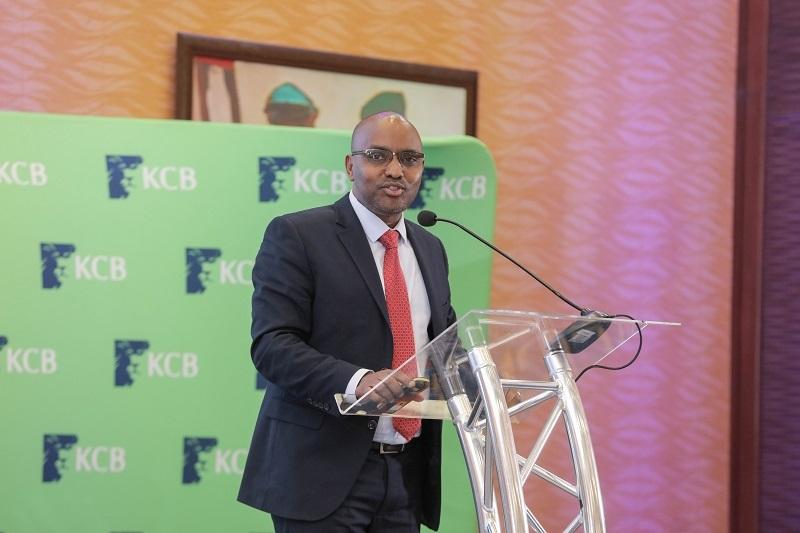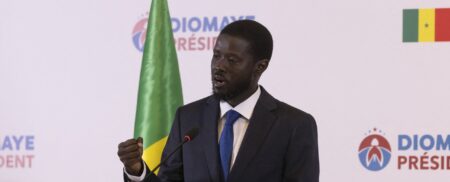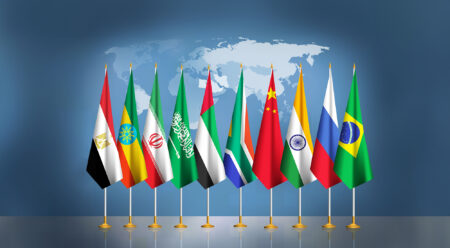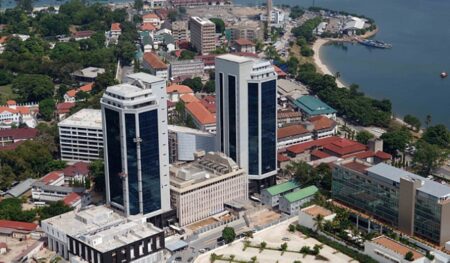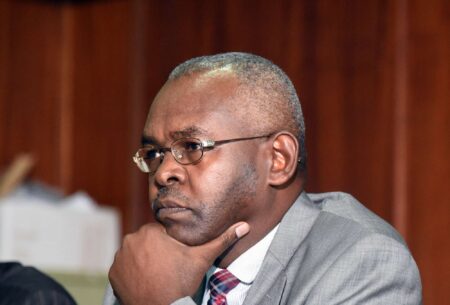- In the three months to March 2023, Group’s total assets rose by 39.8 percent to close at $11.8 billion buoyed by DRC subsidiary TMB.
- Revenue increased by 26.9 percent to $267.4 million mainly driven by the non-funded income from customer transactions across the Group.
- This is the Group’s newest subsidiary in the Democratic Republic of Congo.
- It demonstrated the range and diversified income streams across the group’s businesses, adequate to cover the elevated operating and funding costs.
Regional lender KCB Group Plc posted $68.8 million in profit after tax for the first quarter 2023, a marginal drop attributable to acquisition and consolidation costs of its newest subsidiary, Trust Merchant Bank (TMB), in the Democratic Republic of Congo.
In the quarter, however, the Group recorded a strong balance sheet growth with total assets hitting $11.8 billion, with TMB contributing 14 percent to the Group’s total assets. The bank said this was attributable to strong customer confidence, as focus shifted to supporting customers to navigate the hard economic environment while ring-fencing the business for growth.
Revenue increased by 26.9 percent to $267.4 million mainly driven by the non-funded income from customer transactions across the Group network and consolidation of TMB; the Group’s newest subsidiary in the Democratic Republic of Congo.
This demonstrated the range and diversified income streams across the group’s businesses, adequate to cover the elevated operating and funding costs.
The contribution of group businesses (excluding KCB Bank Kenya) to the overall profitability was up to 35 percent from 17.2 percent as investments in regional businesses continued to pay off. The contribution to total assets improved to close the period at 38.2 percent.
KCB Group subsidiaries post strong results
“Our focus was on delivering value and support to customers to help them navigate the tough economic environment, while driving revenue growth for the Bank. The first quarter performance highlights the resilience of the business across the corporate and retail franchises. The regional businesses performed well, giving credence to the regional expansion strategy,” KCB Group CEO Paul Russo said.
During the period, the group continued to embed customer obsession across the Group to position it as the key pillar through which it delivers its strategy.
“We continuously pursued innovations and delivered products with leading value propositions. We are deliberate on driving stronger growth, on the back of delivering value to customers, growing the existing businesses, opening new frontiers and a tight cost management regime,” Russo said.
Read also: KCB acquires TMB, increasing footprint in DRC
During the period, non-funded income grew by 59.2 per cent to $107.2 million from service fee income stream that is anchored on enhanced digital capabilities. This has resulted in customers conducting 99 per cent of all transactions with ease and secured digital channels.
The contribution from TMB is off to an impressive start, making it the second largest subsidiary in the Group. TMB contributed $13.8 million in profit before tax in the quarter and 14 percent to the Group’s total assets.
KCB Group doubles loss provisions
Costs during the period, however, increased by 46.1 percent from consolidation of TMB and expenditure to support additional revenues generated.
Loan loss provisions rose by 99 percent, driven by increased credit risk and the impact of forex devaluation in Kenya. This was a prudent step on the backdrop of a challenging operating environment, which has greatly impacted asset quality.
On asset quality, the ratio of non-performing loans (NPL) stood at 17.5 percent, largely driven by downgrades from the KCB Kenya business. The Group is focused on recovery efforts and proactive management of the lending portfolio management to improve the asset quality, the bank said.
The growth in total assets by 40 percent to $11.8 billion makes KCB the largest bank in Eastern Africa. The rise was powered by higher loans and investment in government securities. Continued growth in customer deposits and additional borrowings has seen KCB assets rise remarkably.
During the quarter, customer loans were up by 32 percent to $6.7 billion, from increased lending across the Group while customer deposits rose by 41.5 percent to $8.7 billion, mainly from TMB and a the existing businesses.
Regulatory capital requirements
Further, shareholders’ funds grew by 17 percent to $1.6 billion from the increase in accumulated profits for the year to date.
Capital buffers were well above regulatory limits, with core capital as a proportion of total risk weighted assets standing at 13.6 percent against the statutory minimum of 10.5 percent.
Total capital to risk-weighted assets ratio was at 17 percent against a regulatory minimum of 14.5 percent. All banking subsidiaries were compliant with their respective regulatory capital requirements, the group’s financials reflect.
While the Group’s growth in the past has been majorly driven by Kenya, its future hinges on becoming a significant regional player, management has affirmed.
“We therefore continued to bolster our capacity to match the meaningful role that we seek to play and become an undisputed leader in the region,” said KCB Group Chairman Andrew Kairu.
“We are optimistic about improved performance in the remaining quarters of the year despite the tough environment that has impacted on customers and the economy as a whole,” he added.
Key corporate developments
During the period, the Group completed the reorganization of its subsidiaries; KCB Capital Limited and NBK’s National Trustee and Investment Services Limited (NTISL). KCB Capital has been rebranded to KCB Investment Bank and will focus on offering wealth management, advisory services, brokerage services and the distribution of collective investment schemes with a focus on money market funds.
NTISL is now KCB Asset Management, and its core objects include provision of fund management services, corporate trustee, pension management services and development of collective investment schemes & unit trusts. This reorganization will help harness their synergies to create an investment products powerhouse and diversification across the group.
Read also: KCB plans opening 12 new branches in KEnya, Tanzania
The Group continued to enhance its customer value propositions. Last month, KCB Bank Kenya and National Bank of Kenya signed a distribution deal with Sanlam Life Insurance to deepen the uptake of life insurance products in the country. (https://bluffsrehab.com)
Distributing life insurance products
Through KCB Bancassurance Intermediary Limited (KBIL) and National Bank Bancassurance Intermediary Limited (NBIL)—their respective bancassurance franchises— customers will be able to access a full range of financial and investment products within the banks’ combined 300 branches.
This will see KBIL and NBIL distribute life insurance products, underwritten by Sanlam. The partners have also rolled out an endowment product.
The Group deepened support to the micro, small and medium sized enterprises (MSME) which power the bulk of regional businesses. To avail more lending to this key segment, the bank revised terms for key products for working capital as well as asset-based finance.
The bank also enhanced digitization and automation of the lending process including deployment of pre-scoring models to shorten the swim-lane in credit processing. The group has unveiled a new brand purpose, For People, For Better.
“Through this purpose, we seek to position the brand as the region’s undisputed financial services leader which puts people and their diverse needs first, to make life better for the millions of customers we serve. To achieve this, we will be guided by the values of being closer, connected, and courageous,” management said on Wednesday.
KCB supporting green energy transition
The continued embedding of sustainability in KCB strategy has enabled the bank to support transition to clean energy for millions of customers as well as rejig internal practices to ensure that the business operates sustainably.
Last year, the bank screened facilities worth $1.9 billion for environmental and social due diligence and so far in 2023, have screened facilities worth $1.1 billion.
On social impact, the group continues to spearhead and mobilize support for various citizen-driven engagements across the region.
The high school scholarship program also continued with its scale up reaching 1,326 high student beneficiaries this year and 217 tertiary scholars from disadvantaged backgrounds.





